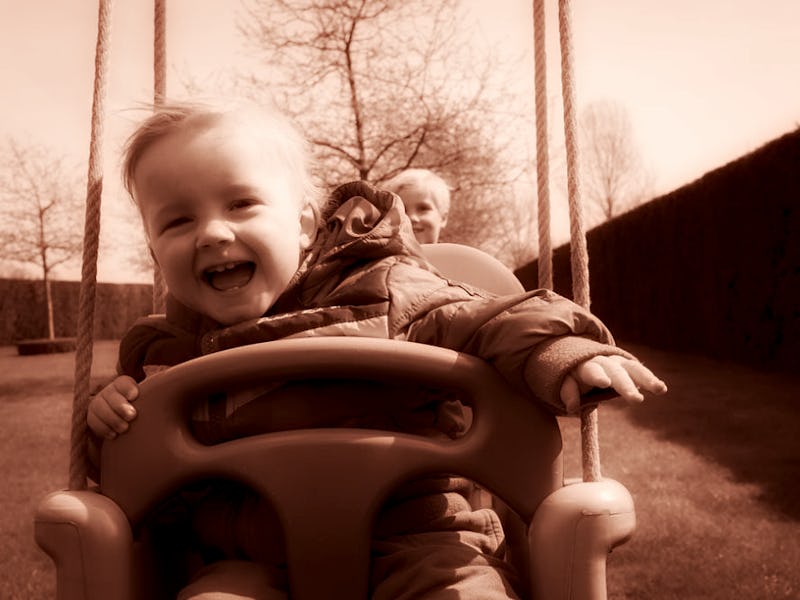Memory Study Casts Doubt on the First Thing You Recall From Your Childhood
Your first memory is probably a lie.

Recently, BBC Radio 4 listeners were invited by a team of scientists to go to a website and describe their memories. When asked to recall their very first memory, each went on to describe a handful of classic baby moments, like laying in a carriage, going to the seashore, and feeling deep sadness for the very first time. In an analysis of those responses, published Tuesday in the journal Psychological Science, the researchers reveal that many of those people were remembering lies.
In the paper of these responses, the team of scientists call the collection of participants’ memories a “major conundrum.” Of the 6,641 “first memories” included in this study, approximately 2,487 were said to have occurred when the individual was about two years old. Meanwhile, 893 of these memories were apparently formed when the individual was one year old or younger.
The problem is that memory researchers have established that you can’t make memories when you’re any younger than three-and-a-half years old — and even at that age, there’s a chance your memories still won’t encode. The memories collected in the study, the scientists believe, were probably not tied to real-life events. And even if they were, there’s no way that the participants could recall them from their own memories alone.
“Crucially, the person remembering them doesn’t know [the memory] is fictional,” study co-author and University of London professor Martin Conway, Ph.D. explained. “In fact when people are told their memories are false they often don’t believe it. This is partly due to the fact that the systems that allow us to remember things are very complex, and it’s not until we’re five or six that we form adult-like memories due to the way that the brain develops and due to our maturing understanding of the world.”
There's no way this girl remembered this bird.
When we recall a memory, we reactivate a group of neurons, which formed as the synapses between them became stronger over time. It’s thought that the more those synapses are activated — that is, the more often a memory is recalled — the stronger the connection, and so the more easily a memory is accessed.
Different parts of our brain store different memories. Implicit memories, for example, live in the basal ganglia and cerebellum, while short-term memories kick it in the prefrontal cortex. Explicit memories of personal experiences or general facts — the focus of this study — are stored in the brain’s hippocampus, neocortex, and amygdala.
Previous research has shown that explicit memories aren’t stored in the brain before the age of three-and-a-half. “The process underlying the ability to form autobiographical memories are functional by the 3rd year of life,” the scientists write. Now, however, “other factors, including sociolinguistic development, may further lengthen the period in which full autobiographical memories form.”
Do you really remember your childhood dog? Probably not.
In other words, the scientists think you need to be able to successfully communicate to encode a memory. The reason the study participants think they have memories from their first two years of life is because they’re likely recalling memory fragments, then filling in the rest of the information with stories they’ve heard, pictures they’ve seen, and imagined facts. Over time, the scientists explain, these false memories begin to feel real.
“We suggest that what a rememberer has in mind when recalling fictional improbably early memories is an episodic-memory-like mental representation consisting of remembered fragments of early experience and some facts or knowledge about their own infancy,” explains first author and University of Bradford research associate Shazia Akhtar, Ph.D. . “Such episodic-memory-like mental representations come, over time, to be re-collectively experienced when they come to mind and so, for the individual, they quite simply are ‘memories’ which particularly point to infancy.”
In their much-maligned hit “Photograph,” Nickelback sings: “Every memory of lookin’ out the back door/I have a photo album spread out on my bedroom floor.” Sometimes, the memories you think you have are the recalling of photographs and not real events — which is something Canadian rockers and scientists can stand by.